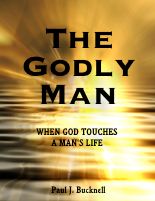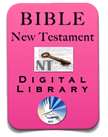

Learn how to make inductive Bible study questions!
Introduction to Inductive Bible Studies
in the Book of Titus
Paul Bucknell
Ramesh Reddy
_________________________
Inductive Bible Study Questions: Introduction | Book study
Study Questions: Titus 1:1-4 | Titus 1:5-9 | Titus 1:10-16
Titus 2:1-10 | Titus 2:11-15 | Titus 3:1-8 | Titus 3:9-15
Titus Outline | Titus Map | Titus Commentary (see below)
Intro to Titus | Titus 1:1-4 | Titus 1:5-9 | Titus 2:1-2 | Titus 3:9-15
Purpose
Introduction to Inductive Bible Studies in the Book of Titus introduces the inductive Bible study series where we hope that one will gain special training in observing and forming inductive Bible study questions which will enhance personal Bible studies, quiet times and any teaching.
Introduction to Inductive Bible Studies
Our goal is to use the Book of Titus to further train you in the inductive Bible study method. We desire that you learn how to form inductive Bible study questions and at the same time be impacted by the Book of Titus. Being able to form such questions will greatly assist you in your own quiet time, teaching and other forms of ministry.
We should not think about this study to provide all the training you might need in this area but to develop the skill of developing good Bible study questions. Each lesson starts off with an approach question and then introduces observation, interpretation and application questions, ending with a summary. Each question is color coded so that one can easily discover the difference between the kinds of questions.
Why should I study the Inductive Bible Study method?
The Lord told Joshua that there were two prerequisites to being greatly blessed and successful. They included being attentively obedient and meditating on God’s Word day and night.
“7 Only be strong and very courageous; be careful to do according to all the law which Moses My servant commanded you; do not turn from it to the right or to the left, so that you may have success wherever you go. 8 This book of the law shall not depart from your mouth, but you shall meditate on it day and night, so that you may be careful to do according to all that is written in it; for then you will make your way prosperous, and then you will have success” (Joshua 1:7-8).
The problem is that many of us simply do not know how to meditate. We are an age of immediacy, quite the opposite training we need to meditate upon God’s Word. Reading God’s Word is not the same as meditation. Meditation comes as we ponder upon God’s Word. Study questions help take us through a passage and build up our ability to meditate on God’s Word. The questions are there to serve you and others, not to hinder.
|
We (Paul, Brian and Ramesh) have all been greatly blessed through these studies. We each have our own testimony on how this Bible study method has greatly helped us in our own personal lives and ministries. We are eager for you to pick up these skills too! Once you become familiar with these study questions, these ‘tools’ (the Bible study method) will fade to the background during your time with God and yet greatly enrich all your studies, personal or otherwise.
What is the Inductive Bible Study (IBS) method?
The inductive Bible study is only one of many kinds of Bible study methods, but it is the most valuable. Inductive Bible studies help a person understand and apply the true meaning of the Bible passage being studied. Deductive studies start with our overall assumptions on a Bible book while inductive studies start from scratch and because of this allow us to better hear and value the author’s original intention.
 The method is not difficult to learn and rotates around the development of three kinds of study questions : Observation, Interpretation and Application.
The method is not difficult to learn and rotates around the development of three kinds of study questions : Observation, Interpretation and Application.
Different Bible passages require slightly different approaches, but each book will largely require the same basic study question format combined with the yearning for God’s Word to grip our heart. Our three kinds of provided questions will be intermingled with each other, passage by passage as the first lesson on manuscript study led us (with slight variation).
Introducing Our Titus Studies
After the first lesson on manuscript study (dividing up of a Bible book into various passages by subject and providing a title), each of the remaining seven lessons will be similar. When a larger book is used, be alert, this dividing up of the Bible book can take a five or more hours.
Start by reading the Bible book several times and then rather quickly move through each chapter, dividing it up and assigning each paragraph a title. At the end, try to discover the Bible book’s general outline. This can be done after you have gone through the book, however. Titus is a short book, and we as a class broke it up in just one class hour. The time was not quite enough, but we could get the basic work done.
Approach questions begin each study, even before reading the text. They are questions that induce one to think about the subject discussed in the Bible passage in such a way that the subject becomes relevant to our lives.
There are three kinds of questions. You will hear this over and over. That is okay. It is part of the training.
We want you to think in these three ways.
Observation: What does it say?
A inductive Bible study will utilize basic observation skills in order to see what the passage actually does say. Make note, even though one might read a Bible passage, it does not necessarily mean that one has observed what it said. One forms observation questions by asking one fact question from the Bible passage: Write down a who, what, when or how question based on a certain verse.
As one spends an increased time thinking about the passage, one will discover more and more observations. We want the real message to come alive. It becomes closer to us when we think through the individual facts compromising a verse or short paragraph. The answer to these observation questions are found in the text. We all should be able to answer these with a little exploration! It does help to use different versions and remember some versions are more literal than others, that is, they are more accurately portraying the original words.
Interpretation: What does it mean?
Forming interpretation questions are fun but answering them may not be so easy! An example of an interpretation question might be, “Pick out one thing that needs to be explained.”
The most important part is actually making the questions, even though one might think the answers are all important. Let me explain. Some people might be wondering what I mean.
Obtaining an answer to a difficult question is great, but we cannot always find one. The first part, and perhaps the most important part of finding answers, is to make good questions. Most the time we find ourselves not really wanting to know. We are not asking questions of what this or that mean. We might read, for example, the term ‘eternal life’ but never ask what it really means. Only when we start asking what things mean, will we start on the path of learning.
Forming interpretation questions are an important part of the learning process. This does not mean, however, that answers come easy. Some do, some don’t. Once we are prayerfully searching, however, the Lord in His time begins to bring answers. The danger is that a person gets frustrated over being unable to find satisfying answers. One must learn to enjoy the learning process. Answers are good, but it is the whole process that becomes a journey on knowing the Lord more.
After many years, I (Paul) am still seeking answers to some questions. Most questions can be found by checking a Bible dictionary or checking the context of the passage itself or even by doing a simple word study. But even if an answer does not pop up to our question, just prayerfully seek God for wisdom and understanding. He is our teacher and this learning posture brings us deeper into a good disciple-mentor relationship with our Lord.
Application: What does it mean to me?
Meditation’s impact largely comes from application, that is, what a certain Bible passage means to my life. For example, to form an application question one might ask, “What is one implication for my life from this passage?”
This application category is larger than many might first think, however. Application includes refining our thoughts, theology, decisions, morals, level of commitment, etc. This induces us to make changes on how we might think, where we might go or what we might do.
When we think about the scriptures, we should be looking forward to changes coming to our lives. This is God meeting us through His Word. We are hearing Him and thus it calls for obedience in various aspects of our lives. Repentance is a common response to His Word, but it also always points us to a correction of one sort or another.
Most quiet times, sermons, lessons seem lifeless largely because God’s Word does not come alive. The ‘alive’ part largely derives from a pertinent application combined with the felt need to change by being in God’s presence.
Our Summary
Each lesson should close with a summary. We have learned and heard many things. But we need to focus at least on one specific lesson. The temptation is to go away as if we never heard anything. Wisdom dictates that we take at least one thing that we learned and use ti to make some specific change.
Conclusion
We hope that you enjoy your studies. Please observe what kind of question each question is. Each kind of question is not only color-coded but also variously indented.
Observation / Interpretation / Application Questions
- Observation questions
- Interpretation questions
- Application questions
Each study will consist of all three kinds of questions, typically used with equal emphasis. There are at least two ways to help train yourself in forming inductive Bible study questions.
(1) The best way!
For each paragraph of scripture, make your observation, interpretation and application questions before you look at the ones provided then compare them. This will provide great insight and bring about the biggest learning experience.
(2) A very good way!
You can also just answer the questions as provided. Use it as a personal quiet time where you are looking to God to teach and enrich your life. Afterwards, spend about ten minutes going back and observing the different questions along with the text. Note how we approached each lesson. It would be great if you attempted to form your own questions at some point and observed where you did well or ran into difficulties.
Note: When teaching this series, some questions were given in a large group. We discussed it together. Sometimes we broke into small groups and each group discussed the topic. We then had the groups share their conclusion or just one or two from different groups speak. Or we would just as the teacher voice an answer or observation. The teacher in the end would summarize and continue on.
=> Next: Step #1: Book study on Titus (manuscript study)








